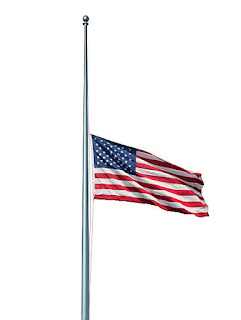Church bells will ring throughout the city this morning at 8:46 a.m. to commemorate the 21st anniversary of the terrorist attack on New York, Washington, DC, and by extension the entire United States. That time – 8:46 a.m. – corresponds to the exact moment when the World Trade Center’s North Tower was struck, a moment and a day which (to coin a phrase) « will live in infamy. » This morning, the names of the 2983 people who lost their lives in that terrorist attack will be read out loud. At sundown tonight, a Tribute in Light will illuminate the New York sky just south of the World Trade Center.
On September 11, 2001, I was next door at the time of the attack, casting my vote in the NY Democratic primary, preparing to nominate candidates to run for mayor to replace the obnoxious incumbent. It was an inadvertent coincidence, but it remains a reminder that it was our distinctively American constitutional democratic order that was attacked on that terrible day, that the American constitutional democratic order is still very much in jeopardy (albeit from domestic rather than foreign threats), and that the defense of this exceptional constitutional democratic order is an ongoing responsibility which we dare not shirk.
Violent attacks upon our country and our constitutional way of life have tragically punctuated our history, in each case requiring a response sufficient to restore our sense of national purpose. The most significant such violent threats have been four: in 1861, the violent rebellion of Confederate traitors who rejected the constitution, the rule of law, and the will of the people as it had been expressed in a presidential election; in 1941, the surprise Japanese attack on Pearl Harbor; in 2001, the terrorist assault which we commemorate today; and, in 2021, the violent attack on the U.S. Congress intended to prevent it from fulfilling its constitutional mandate to count the electoral votes for president and ensure the peaceful transfer of power from the loser to the winner. In that most recent instance, as in the first one, the threat to constitutional democratic government and to our American way of life came not from abroad but from fellow citizens.
A proponent of unity and reconciliation in service of the American Dream, Abraham Lincoln famously ended his First Inaugural, in which he had called out the specific threats the nation faced with entreated from those who had also rejected the constitution the rule of law, and the will of the people in elections, with this entreaty: We must not be enemies. Though passion may have strained it must not break our bonds of affection. The mystic chords of memory, stretching from every battlefield and patriot grave to every living heart and hearthstone all over this broad land, will yet swell the chorus of the Union, when again touched, as surely they will be, by the better angels of our nature.
That appeal fell on deaf ears then.
What might we hope for now?
